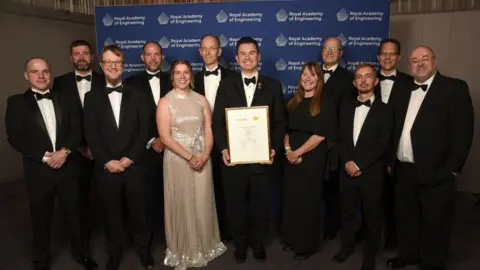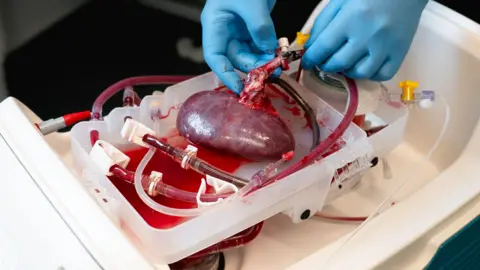Organ-saving device wins top innovation award
 OrganOx
OrganOxThe team behind a pioneering device that keeps human organs alive outside the body has earned a top engineering prize.
The device manufactured by Oxford-based OrganOx won this year's MacRobert Award, which is run by the Royal Academy of Engineering, on Tuesday.
OrganOx was founded in 2009 by biomedical engineer Prof Constantin Coussios and transplant surgeon Prof Peter Friend.
Their device mimics the human body by pumping a blood-like fluid through organs at normal body temperature, supplying oxygen and nutrients.
 OrganOx
OrganOxThis allows organs - such as livers and kidneys - to remain functional for over 24 hours, producing bile and urine, and even repairing themselves.
"The fact that there are 6,500 people alive today because of those efforts is what this award recognises," Prof Coussios said.
A major US transplant centre reported a drop in median liver transplant wait times from 82 to 14 days, and a reduction in waiting list mortality from 18% to 6%.
Recently, the team successfully transplanted 36 kidneys in a first-in-human trial in Oxford.
With over 7,500 people still on the UK transplant waiting list, the technology offers hope.
"Liver and kidney transplantation are in our immediate sights," said Prof Coussios.
You can follow BBC Oxfordshire on Facebook, X (Twitter), or Instagram.
